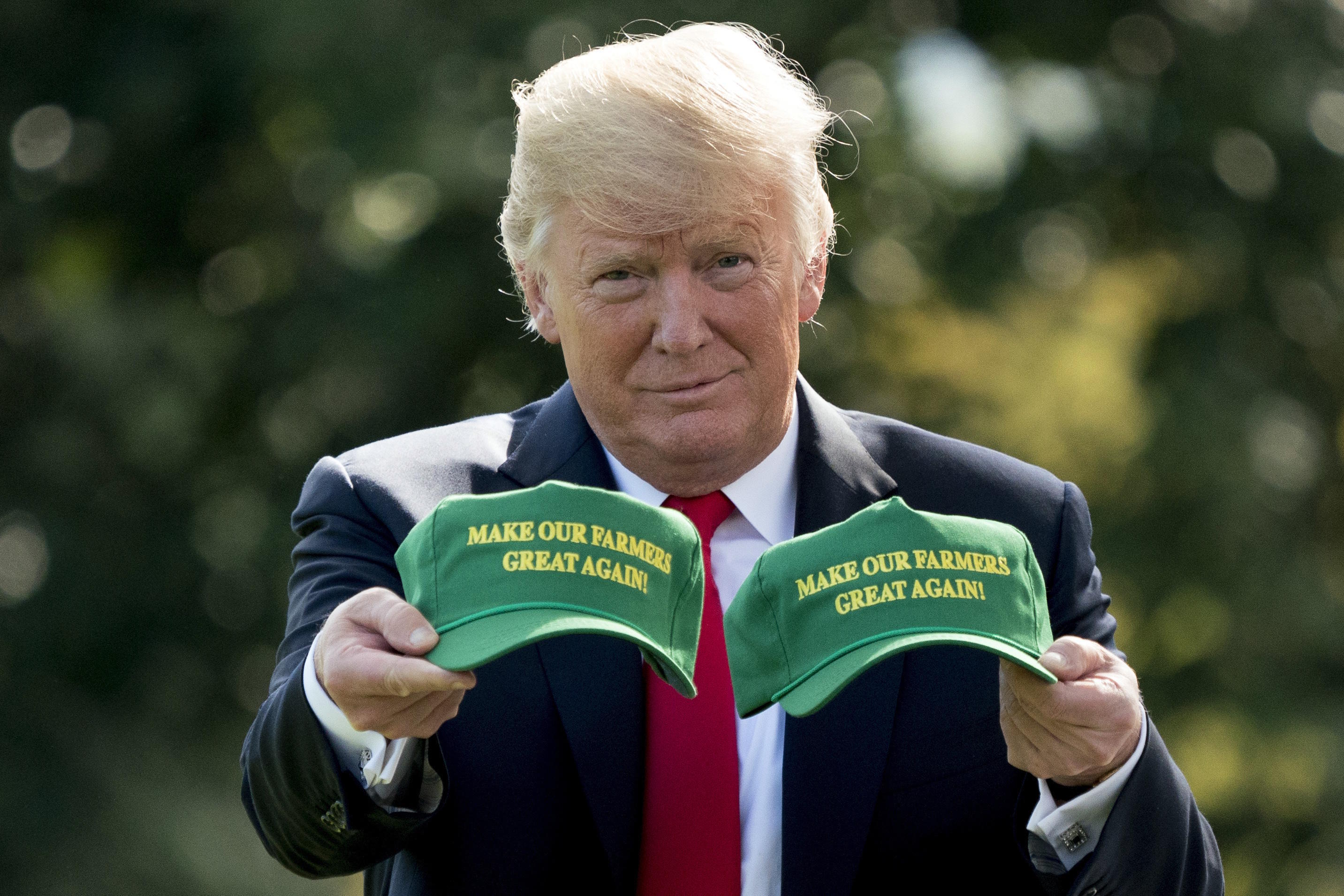In Yiwu, a city in southeast China, the Christmas campaign always begins in April. The real workshop of Santa Claus is located in a commercial labyrinth of 260,000 square meters with 75,000 stores where millions of products are displayed, including two-thirds of all festive decorations purchased worldwide, starting in the United States, which sources 87% of its Christmas pantry with paraphernalia that comes from the mother of all Chinese bazaars.
In a normal April, almost all orders from American customers would have been completed, and many of them should already be on their way. But it has not been the case. Many manufacturers and retailers in Yiwu have gone two weeks without hearing from their customers. There are dozens of containers with artificial Christmas trees and just as many decorations that are stalled due to Donald Trump's trade war, which has increased tariffs on Chinese imports by 125% so far this year.
"Here, everyone is very nervous. We have several clients in the US, and this season forecasts pointed to a significant increase in purchases compared to last year. But now we have five containers stranded due to tariffs," says Jaime Horvilleur (33 years old), a Spanish commercial agent who has been working in Yiwu for over 15 years, in conversations with this newspaper. Yiwu is a city of one and a half million inhabitants absorbed by the world's largest wholesale market for basic commodities. A place surrounded by factories that meet the global demand for Christmas products, summer campaigns, or even all the merchandising surrounding the figure of the US president.
Because in Yiwu, the major commercial center of the world's factory, many Chinese exporters have done good business with the caps, mugs, and clothing of the famous Make America Great Again. But now, when the stock runs out in the US, if a Republican voter wants to buy a new red cap with Trump's popular slogan printed, they will have to pay 125% more.
"There are many factories and exporters here that depend on the American market. For example, the supermarket chain Walmart sources many of its daily use products from Yiwu. The same goes for large textile companies like Nike or Adidas. Many operations and shipments have now been halted due to all this chaos surrounding the trade war. No one dares to move forward or backward because the situation is very volatile, as we have seen with the tariff truce that Trump has given to all countries except China. But, tomorrow, Washington and Beijing could sit down to negotiate. There is a lot of uncertainty," explains Horvilleur.
The reality in Yiwu at the moment is that sellers and manufacturers are very concerned because they are not receiving calls from their usual American customers, who always ordered Christmas products at this time. "Trump is destroying Christmas with his tariffs," says Ming Ji, owner of one of the stores that sells Christmas lights and figures in the mega shopping center. "Perhaps American customers will not buy anything this year," stated a Christmas tree manufacturer named Qun Ying in statements to Reuters.
Many Chinese traders claim to have American customers who have already canceled some orders, while others have requested to stop production and shipments to see how the tariff war evolves.
"We experienced something very similar during the first trade war in 2018 when Trump put on the rooster costume. What he is doing is a clear strategy of negotiation and market manipulation for his own benefit. But the conditions he is imposing regarding the US deficit needing to be offset are absurd. For now, with China, Trump is pushing the limits. But if he does not lower his negotiation standard, we do not know what will happen," analyzes the Spanish agent.
The origin of the Yiwu market dates back to the 1980s with the explosion of Made in China. It was a time when the ruling Communist Party began its great opening to the outside world, and this city, which was a regional barter center with street vendors exchanging chicken feathers for brown sugar, began to transform into a gigantic shopping center welcoming buyers from around the world looking for cheap products.
Later on, many manufacturers specialized in Christmas, while others quickly adapted to the products demanded by the market. For example, last summer, just a couple of hours after the assassination attempt against Trump at a campaign event in Pennsylvania, Yiwu stores were already selling the first t-shirts with the iconic photograph of the president raising his fist while blood dripped from his right ear.
